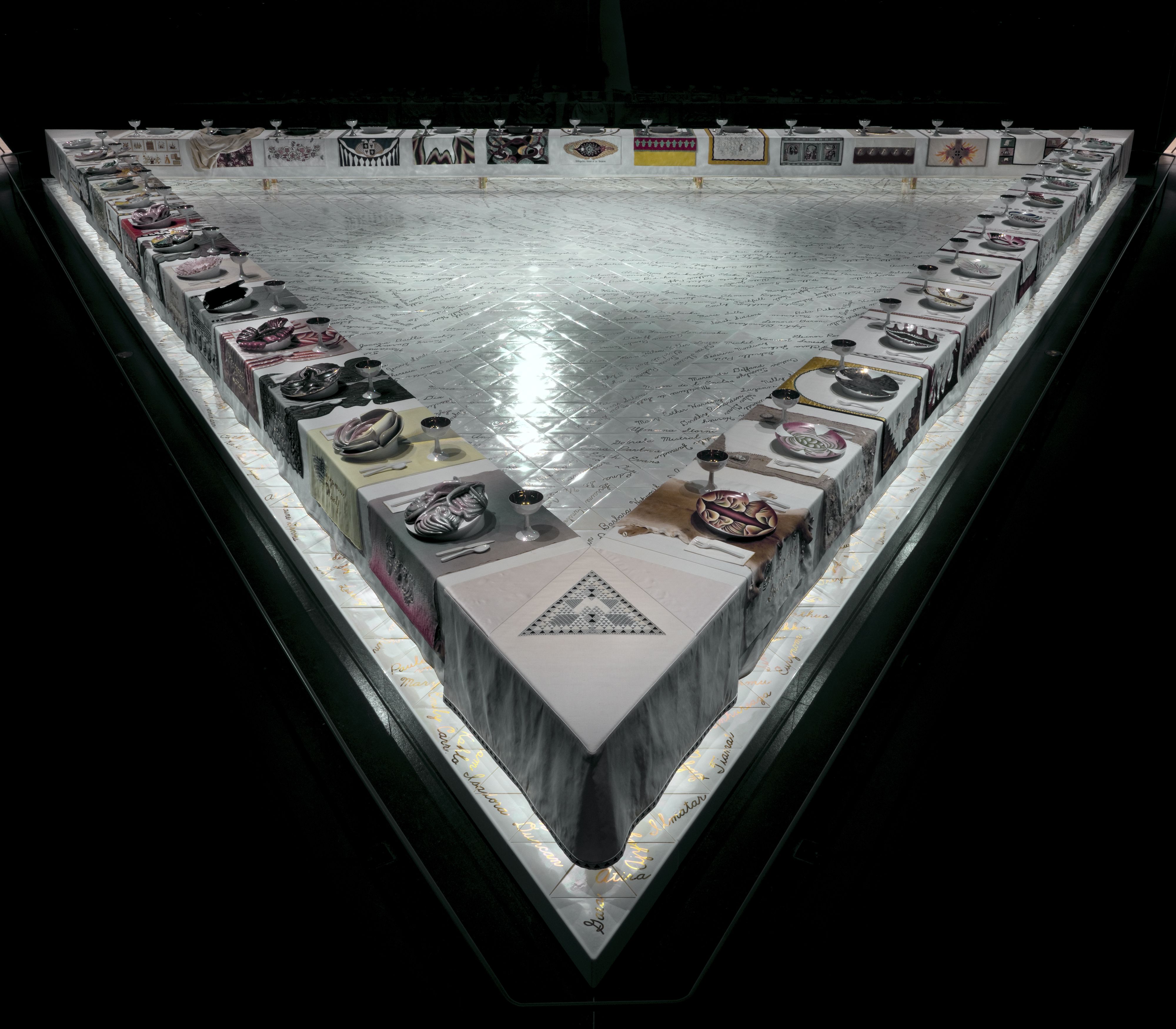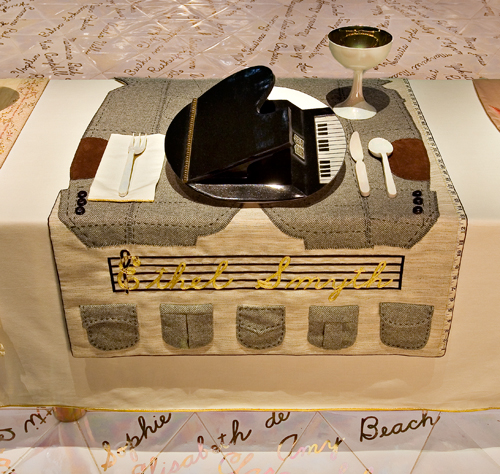
When I first visited the Brooklyn museum without Professor Cacoilo , I got the chance to explore The Dinner Party by Judy Chicago. I loved
how beautiful the piece was and the homage it paid to so many women that made a
huge impact on the world. From people like Susan B Anthony, who played a huge
part in what is the Women’s rights movement, which gave women the opportunity
to fight for the right to vote, to Georgia O’ Keefe, who is considered by some
to be the foremother of the feminist art movement and one of the most well-known
American painters. Without Professor Cacoilo, I wasn’t able to take in just how
important the piece was, and I didn’t have the level of understanding until she
explained it to us.
At the exhibition, I got the chance to closely observe every
place setting Judy Chicago had set out for her Dinner Party installment. Each
setting is dedicated to a woman who has played a part in achieving the same
rights for women as for men. The installation is set up as a triangle in which
each side of the triangle is referred to as a wing. Along each wing is a total
of 13 place settings consisting of a table runner, plate, chalice, napkin, and
utensils, each uniquely designed to pertain to the certain individual. Wing one
begins in Prehistory and chronologically ending in the Roman Empire. Wing two
pertains to early Christianity through the reformation. Wing three addresses
the American Revolution, Suffragism and the movement toward women’s increased
individual creative expression and what better way than to end that wing than with
Georgia O’ Keeffe. In total you will find 39 place settings and 999 names inscribed
on the floor of the installment that unfortunately were not able to make it onto the main table. If I had to choose two of the place settings
that really caught my attention it would have to be Ethel Smyth and Emily Dickinson.
Something to keep in mind about each plate is that they all are made to
resemble the anatomy of a woman’s vagina. Emily Dickinson is best known for her
poetry which defied the nineteenth century expectation that women were to be submissive
to their male counterparts. Her plate is a standstill piece
surrounded by a sort of fanned out lace. Ethel Smyth is known for her work as a
musician as well as speaking up for female musicians and fighting for women’s
rights. This one really caught my eye because it didn’t look like the rest. While
every other plate was made to look like a vagina, Ethel Smyths plate is made to
look like a piano which completely resembles the love Smyth had for music.Soon after, we were able to finally venture off into the museum and explore for ourselves. Apart form The Dinner Party being one of my favorite installments to look at in The Brooklyn Museum, the European Art had to be another installment that I enjoyed the most. Not only was the art so enticing but the setting it was in alone was absolutely mind boggling. It was just absolutely beautiful. The first time I came to visit the museum, I was lucky enough to witness the hall fully decorated for a wedding. The beautiful decorations did not only make the hall look stunning but it made the pieces so much more interesting to look at.

No comments:
Post a Comment